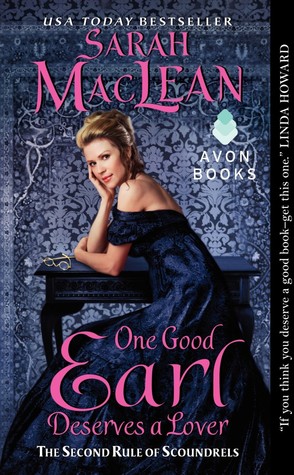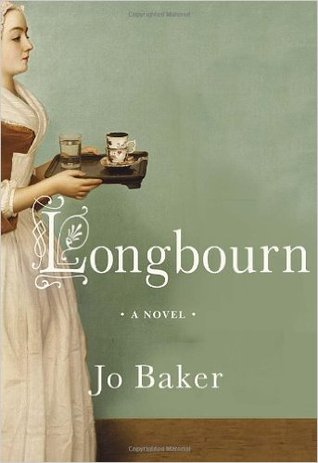In the past month I’ve read three books set in times past, and I realized that though the purpose and language of each book is different, they all have this in common: protagonists wearing empire waists!
One Good Earl Deserves a Lover (Sarah MacLean) is the second book in the Rules of Scoundrels romance novel series (judge me, haters), set in Regency England. In this book, the independent, smart, aint-gonna-take-nothin-from-nobody Lady Philippa unwittingly seduces the silent and closed-off owner of a sleek gambling club. She uses her wits, brains, and nerdy-girl charm to save the day. I don’t think this book is particularly historically accurate, but Princess Peach rescuing Mario, so there.
The House of Mirth (Edith Wharton) was written and set in turn of the century New York. The story gets way too melodramatic at the end, but I really enjoyed watching the tailspin of the life of the protagonist Lily. She reminded me a lot of Jane Austen’s Emma Woodhouse because of how quick she is to snub those who aren’t good enough, only to later realize how much she needs to be in the good graces of others. The whole book uses language straight from theatre to emphasize that everyone is playing a role and wearing a mask. No wonder my favorite character, Lawrence Selden, is the fresh of breath air who criticizes all the superficiality. Fun trivia: Edith Wharton’s maiden name was Jones—it was her family that inspired the phrase “Keeping up with the Jones’s” because they were the richest and showiest family in Old New York.
Longbourn (Jo Baker) is Pride & Prejudice retold from the servants’ perspectives. This answers questions such as: Does Hill have children? What happens to servants’ children when they do have them? Wasn’t there a war going on, and why wasn’t anyone concerned about it? Was the abolitionist movement before or after this? How did Darcy and Bingley become so rich? I really, really liked all of the choices that Jo Baker made in adding details to the original cast. She brought a deeper and more rounded perspective to all of the characters. Wickham is a pedophile, for example. And Elizabeth is more self-absorbed in a way that highlights the ugliness of her pride.
I disliked where Baker quotes exactly from P&P (though she always does it in a clever way), and my favorite parts were where she diverged completely from Austen. There is a very informative discussion of the role of slavery in producing the wealth of the British upper class and its contribution to England’s economic development. The story also explains more details about the class differences between soldiers who self-enlisted in the army and those who bought their way in (like Wickham). As a particularly sharp criticism, one of the footsoldiers is in a rural village in Spain, “saving” the Spanish from the French, when he sees obscenities in English scrawled on the walls of a sacked house. He realizes that he is a pawn caught in a rich person’s game.
In spite of all the things I enjoyed and the writing being lush and really well developed, I thought the book was okay. My personal preference is that P&P adaptations be set in other times and places than the original, because can anyone really top that?
One Good Earl Deserves a Lover (Sarah MacLean) is the second book in the Rules of Scoundrels romance novel series (judge me, haters), set in Regency England. In this book, the independent, smart, aint-gonna-take-nothin-from-nobody Lady Philippa unwittingly seduces the silent and closed-off owner of a sleek gambling club. She uses her wits, brains, and nerdy-girl charm to save the day. I don’t think this book is particularly historically accurate, but Princess Peach rescuing Mario, so there.
The House of Mirth (Edith Wharton) was written and set in turn of the century New York. The story gets way too melodramatic at the end, but I really enjoyed watching the tailspin of the life of the protagonist Lily. She reminded me a lot of Jane Austen’s Emma Woodhouse because of how quick she is to snub those who aren’t good enough, only to later realize how much she needs to be in the good graces of others. The whole book uses language straight from theatre to emphasize that everyone is playing a role and wearing a mask. No wonder my favorite character, Lawrence Selden, is the fresh of breath air who criticizes all the superficiality. Fun trivia: Edith Wharton’s maiden name was Jones—it was her family that inspired the phrase “Keeping up with the Jones’s” because they were the richest and showiest family in Old New York.
Longbourn (Jo Baker) is Pride & Prejudice retold from the servants’ perspectives. This answers questions such as: Does Hill have children? What happens to servants’ children when they do have them? Wasn’t there a war going on, and why wasn’t anyone concerned about it? Was the abolitionist movement before or after this? How did Darcy and Bingley become so rich? I really, really liked all of the choices that Jo Baker made in adding details to the original cast. She brought a deeper and more rounded perspective to all of the characters. Wickham is a pedophile, for example. And Elizabeth is more self-absorbed in a way that highlights the ugliness of her pride.
I disliked where Baker quotes exactly from P&P (though she always does it in a clever way), and my favorite parts were where she diverged completely from Austen. There is a very informative discussion of the role of slavery in producing the wealth of the British upper class and its contribution to England’s economic development. The story also explains more details about the class differences between soldiers who self-enlisted in the army and those who bought their way in (like Wickham). As a particularly sharp criticism, one of the footsoldiers is in a rural village in Spain, “saving” the Spanish from the French, when he sees obscenities in English scrawled on the walls of a sacked house. He realizes that he is a pawn caught in a rich person’s game.
In spite of all the things I enjoyed and the writing being lush and really well developed, I thought the book was okay. My personal preference is that P&P adaptations be set in other times and places than the original, because can anyone really top that?



No comments :
Post a Comment